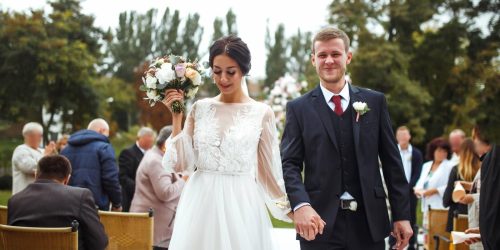Diploma in interpretation for artistic and cultural events in EEUU
price :
650 $
General Information
- Level: Specialized Diploma
- Mode: Online
- Type: Translation and interpretation
- Duration: 24 weeks
- Hours: 450 Hours
- Enrollment period: 27-02-2026
- Start date: 28-03-2026
- Financing: 5 months
Diploma in interpretation for artistic and cultural events in EEUU

About Diploma in interpretation for artistic and cultural events in EEUU
What does it prepare you for? Diploma in interpretation for artistic and cultural events in EEUU
This diploma prepares you to be a competent interpreter at cultural and artistic events, such as exhibitions, concerts, theatre performances and other settings where effective communication is essential.
Content of the Diploma in interpretation for artistic and cultural events in EEUU
Techniques for interpreting in artistic events
• Artistic and cultural terminology
• Interpreting in music and theatre events
• Protocol and etiquette in cultural events
• Interpreting practices in real events
Study plan:
Module 1: Introduction to interpreting in artistic and cultural events
• Submodule 1.1: Definition and characteristics of interpreting in the artistic and cultural field.
• Submodule 1.2: Importance of interpreting for the promotion of cultural diversity.
• Submodule 1.3: Ethics and cultural sensitivity in artistic interpretation.
Module 2: Types of artistic and cultural events
• Submodule 2.1: Interpreting in art exhibitions.
• Submodule 2.2: Interpreting in music and concert events.
• Submodule 2.3: Interpreting in theatrical and dance events.
Module 3: Techniques and strategies for artistic interpretation
• Submodule 3.1: Adaptation to poetic and metaphorical language. • Submodule 3.2: Interpreting abstract artistic expressions.
• Submodule 3.3: Working with artists and creators in interpretation.
Module 4: Specific terminology in artistic and cultural events
• Submodule 4.1: Developing a specialized vocabulary in art and culture.
• Submodule 4.2: Interpreting technical and artistic terms.
• Submodule 4.3: Interpreting cultural speeches and presentations.
Module 5: Cultural context in artistic interpretation
• Submodule 5.1: Exploring the relationship between art and culture.
• Submodule 5.2: Cultural sensitivity and adaptation in artistic interpretation.
• Submodule 5.3: Impact of culture on the interpretation of artistic events.
Module 6: Challenges and strategies in interpretation for artistic and cultural events
• Submodule 6.1: Overcoming cultural and linguistic barriers in artistic contexts.
• Submodule 6.2: Strategies for interpreting at events with multiple forms of artistic expression.
• Submodule 6.3: Handling highly emotional situations at cultural events.
Additional activities
• Interpreting practices at simulated artistic and cultural events.
• Visits to real exhibitions, concerts and cultural events.
• Collaboration with artists and cultural event organisers for direct observation.
Assessment
• Practical interpretations at simulated and real events.
• Theoretical exams on concepts and techniques of artistic interpretation.
• Active participation in discussions and case analyses.
Additional resources
• Recommended readings on art history and cultural diversity.
• Access to artistic documents and presentations for practice.
• Lectures and talks with experienced interpreters and artists at cultural events.
Study plan:
Module 1: Introduction to interpreting at artistic and cultural events
• Submodule 1.1: Definition and characteristics of interpreting in the artistic and cultural field.
• Submodule 1.2: Importance of interpretation for the promotion of cultural diversity.
• Submodule 1.3: Ethics and cultural sensitivity in artistic interpretation.
Module 2: Types of artistic and cultural events
• Submodule 2.1: Interpretation in art exhibitions.
• Submodule 2.2: Interpretation in music events and concerts.
• Submodule 2.3: Interpretation in theatre and dance events.
Module 3: Techniques and strategies of artistic interpretation
• Submodule 3.1: Adaptation to poetic and metaphorical language. • Submodule 3.2: Interpretation of abstract artistic expressions.
• Submodule 3.3: Working with artists and creators in interpretation.
Module 4: Specific terminology in artistic and cultural events
• Submodule 4.1: Development of a specialized vocabulary in art and culture.
• Submodule 4.2: Interpretation of technical and artistic terms.
• Submodule 4.3: Interpreting cultural speeches and presentations.
Module 5: Cultural context in artistic interpretation
• Submodule 5.1: Exploring the relationship between art and culture.
• Submodule 5.2: Cultural sensitivity and adaptation in artistic interpretation.
• Submodule 5.3: Impact of culture on the interpretation of artistic events.
Module 6: Challenges and strategies in interpreting for artistic and cultural events
• Submodule 6.1: Overcoming cultural and linguistic barriers in artistic contexts.
• Submodule 6.2: Strategies for interpreting at events with multiple forms of artistic expression.
• Submodule 6.3: Handling highly emotional situations at cultural events.
Complementary activities
• Interpreting practices at simulated artistic and cultural events.
• Visits to real exhibitions, concerts and cultural events.
• Collaboration with artists and organizers of cultural events for direct observation.
Assessment
• Practical performances in simulated and real events.
• Theoretical exams on concepts and techniques of artistic interpretation.

